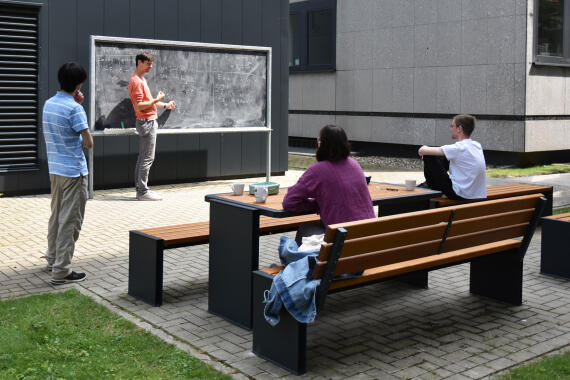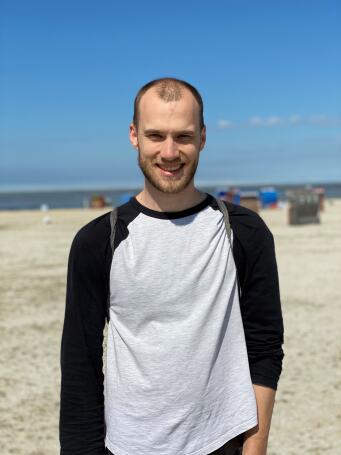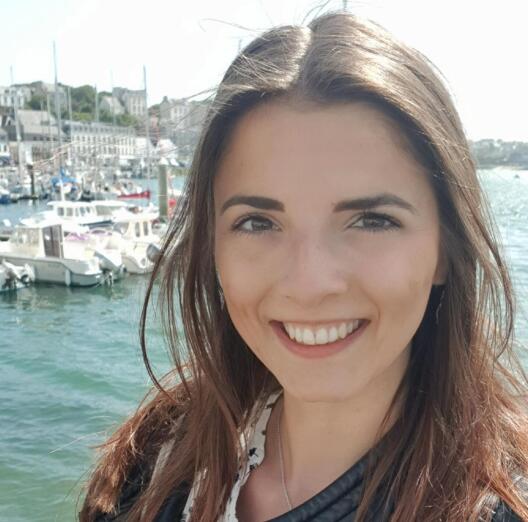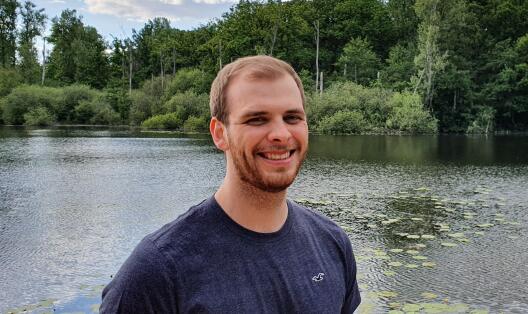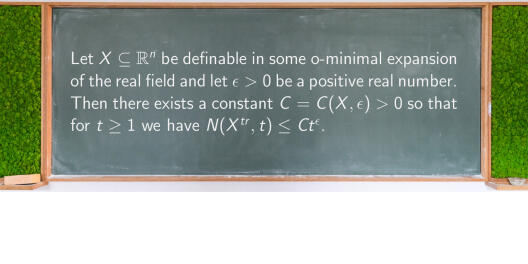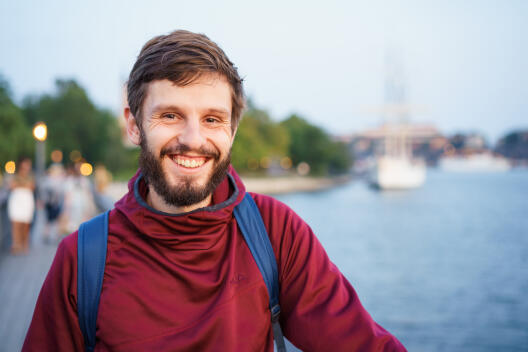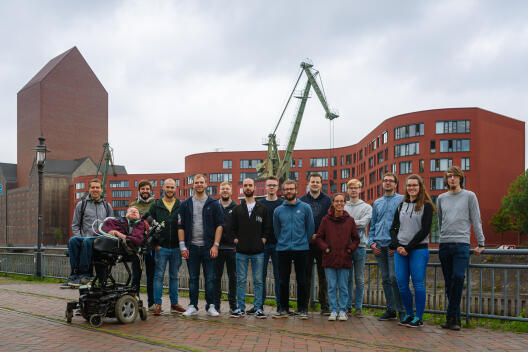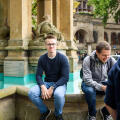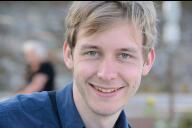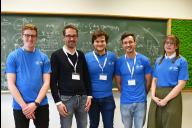MMGS Retreat 2021
Photos
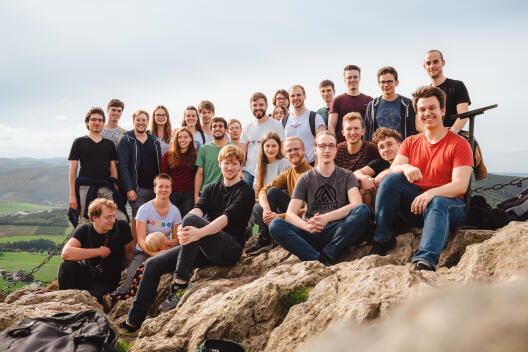
After two Corona years with little human contact, the annual retreat of the MMGS mathematicians in the last week of September 2021 offered a great opportunity to make up for this. The organisational team, consisting of Sahana, Martina, Dennis and Johannes, was able to invite a total of 30 PhD students to Brilon in the Sauerland region, where a varied programme awaited the participants.
On the academic side, there was an exchange with former assistant professor Thomas Timmermann, who gave many insights into his difficult decision to leave the academic career path in a discussion round. Furthermore, each participant had the opportunity to present a part of their research or an exciting mathematical curiosity in a short talk. So there was no shortage of fun either, thanks to topics such as the nonsensical distribution of postcodes in Germany or solving cubic equations with origami. Furthermore, the participants' rhetorical skills were developed under the expert guidance of rhetoric trainer Dr. Elisa Franz.
The beautiful region around Brilon offered the opportunity to spend a lot of time in nature. For example, the doctoral students climbed the volcanic rock formations of the Bruchhauser Steine and explored the Bilsteinhöhle - a large dripstone cave that is open to visitors. This year, almost twice as many people as last year were able to attend the retreat and make many new social as well as mathematical contacts.










